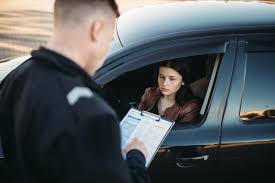Receiving a driving ticket can be a stressful and inconvenient driving with suspended license experience for any driver. Whether it’s for speeding, running a red light, or another traffic violation, understanding the implications and knowing how to respond is crucial. In this article, we’ll delve into the specifics of driving tickets, exploring their consequences, common types, and steps you can take if you find yourself facing one.
Understanding Driving Tickets: Driving tickets, also known as traffic citations or fines, are legal notices issued by law enforcement officers for violating traffic laws. These violations can range from minor infractions like failing to use a turn signal to more serious offenses such as driving under the influence (DUI). Each type of violation carries its own set of consequences, which may include fines, points on your driving record, license suspension, or even jail time in severe cases.
Common Types of Driving Tickets:
- Speeding Tickets: One of the most common driving violations, speeding tickets are issued when a driver exceeds the posted speed limit.
- Red Light/Stop Sign Violations: Running a red light or failing to come to a complete stop at a stop sign can result in a ticket.
- Reckless Driving: Behaviors such as excessive speeding, swerving between lanes, or aggressive driving can lead to reckless driving citations.
- Driving Without a Valid License or Insurance: Operating a vehicle without a valid driver’s license or insurance coverage is illegal and can result in fines and other penalties.
- DUI/DWI: Driving under the influence of alcohol or drugs is a serious offense that can lead to severe consequences, including license suspension and legal fees.
Consequences of Driving Tickets: The consequences of receiving a driving ticket vary depending on the severity of the violation and your driving record. Some potential repercussions include:
- Fines: Most driving tickets come with a monetary fine that must be paid by a specified deadline.
- Points on Your Driving Record: Many traffic violations result in points being added to your driving record. Accumulating too many points within a certain period can lead to license suspension or increased insurance premiums.
- License Suspension or Revocation: Serious offenses, such as DUI or multiple traffic violations, can result in the suspension or revocation of your driver’s license.
- Increased Insurance Premiums: Insurance companies often raise premiums for drivers with a history of traffic violations, as they are considered higher-risk.
- Legal Consequences: In addition to fines and license penalties, certain driving violations may result in criminal charges and potential jail time.
What to Do If You Receive a Driving Ticket: If you receive a driving ticket, it’s essential to take the appropriate steps to address it:
- Review the Ticket: Carefully read the details of the ticket, including the violation, fine amount, and instructions for payment or contesting the citation.
- Decide How to Proceed: Depending on the circumstances, you may choose to pay the fine, contest the ticket in court, or seek legal advice.
- Pay the Fine or Contest the Ticket: If you decide to pay the fine, follow the instructions provided on the ticket to submit payment by the specified deadline. If you wish to contest the ticket, you can request a court date to present your case before a judge.
- Seek Legal Advice: If you’re unsure how to proceed or believe you were unfairly issued a ticket, consider consulting with a traffic attorney who can provide guidance and represent you in court.
Conclusion: Receiving a driving ticket can driving with suspended license have serious consequences, but knowing your rights and understanding the process can help you navigate the situation effectively. By familiarizing yourself with common types of violations, potential consequences, and your options for addressing a ticket, you can take proactive steps to protect your driving record and minimize the impact on your life. Whether it’s paying the fine, contesting the ticket, or seeking legal advice, taking action is key to resolving the matter and moving forward as a responsible driver.



